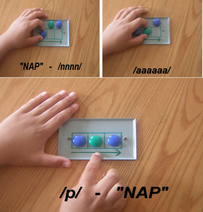|
[This Blog post will focus on some of the basics of Phonological Awareness for young children. Some children may struggle to develop this skill in Kindergarten and Grade 1, and this Blog is meant to you help you understand what a child’s needs might be at these ages. The next Blog, which will be posted soon, will address older students who still may have Phonological Awareness weaknesses that are quietly but significantly impacting reading. At Linguistic Foundations we can help you now with these questions. Please contact us.]
There are many reasons that a young child can struggle to learn to read – some reasons are language-related and some are literacy-based. Very often, weaknesses in Phonological Awareness are a significant cause of literacy difficulties. Teaching phonological awareness in the early grades – especially in Kindergarten – is fundamental. As a parent, it is really important to know how phonological awareness is being taught to your child. Phonological Awareness is a purely language skill. It is a basic language component of the reading process. Phonological Awareness helps a student to hear and work with the sounds of words. It is often called a Lights-Out Activity, because it is about listening to sounds – no letters are involved, and a Kindergarten child needs 20 hours of teaching to be ready to read. Phonological Awareness describes a set of skills, which is built like a ladder, with skills from easiest to most challenging. These are some of the skills (starting with the most basic):
Research shows that each level of Phonological Awareness relates to Reading and Writing skills. For example,
For all of its importance as an essential early literacy skill, Phonological Awareness very often does not receive the instructional focus it needs. A child who struggles to develop phonological awareness will need core instruction with the entire class, as well as small group or individual intervention as needed. She may need more than the 20 hours recommended by the National Reading Panel. Ask your child’s teacher how Phonological Awareness instruction is done in the classroom. You should ask about all of the skills mentioned above, and you should also find out if there is a specific program or curriculum that is used. Also find out how phonological awareness is tested and how testing helps the teacher decide what to teach. In 2000, the National Reading Panel (part of the National Institute of Health) completed a study of all the research that had been done on reading development over the years. They published their studies in several ways – two of the best publications are linked here, one is a parent guide and one is for teachers. Don’t be intimidated by the teacher guide – it is very readable and can give a parent a lot of great information! https://www.nichd.nih.gov/publications/pubs/Documents/PRFbrochure.pdf https://www.nichd.nih.gov/publications/pubs/prf_k-3/Documents/PRFbooklet.pdf Feel free to contact Linguistic Foundations with any questions you might have. Thank you. |
The Latestfrom Archives
May 2018
Categories
|

 RSS Feed
RSS Feed
